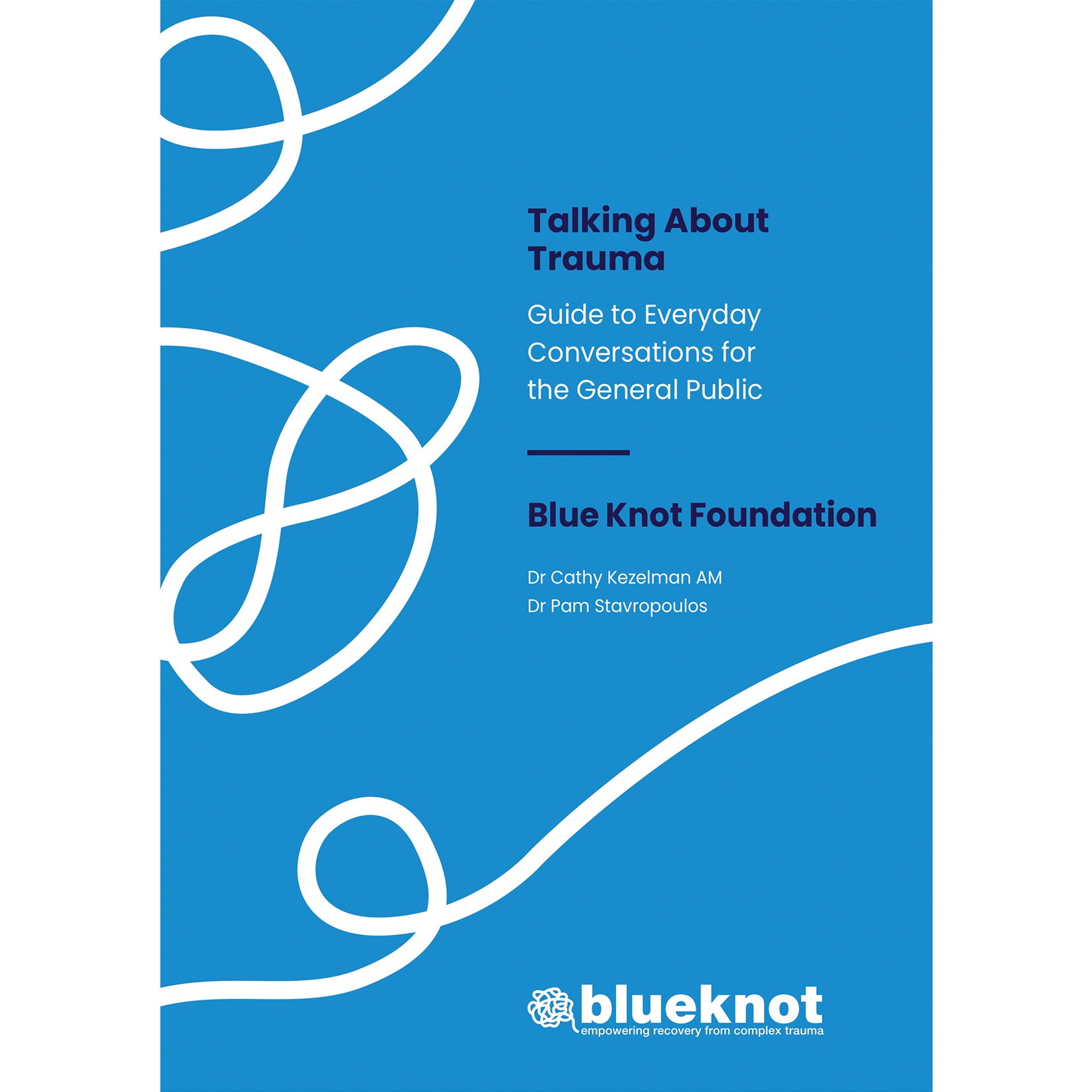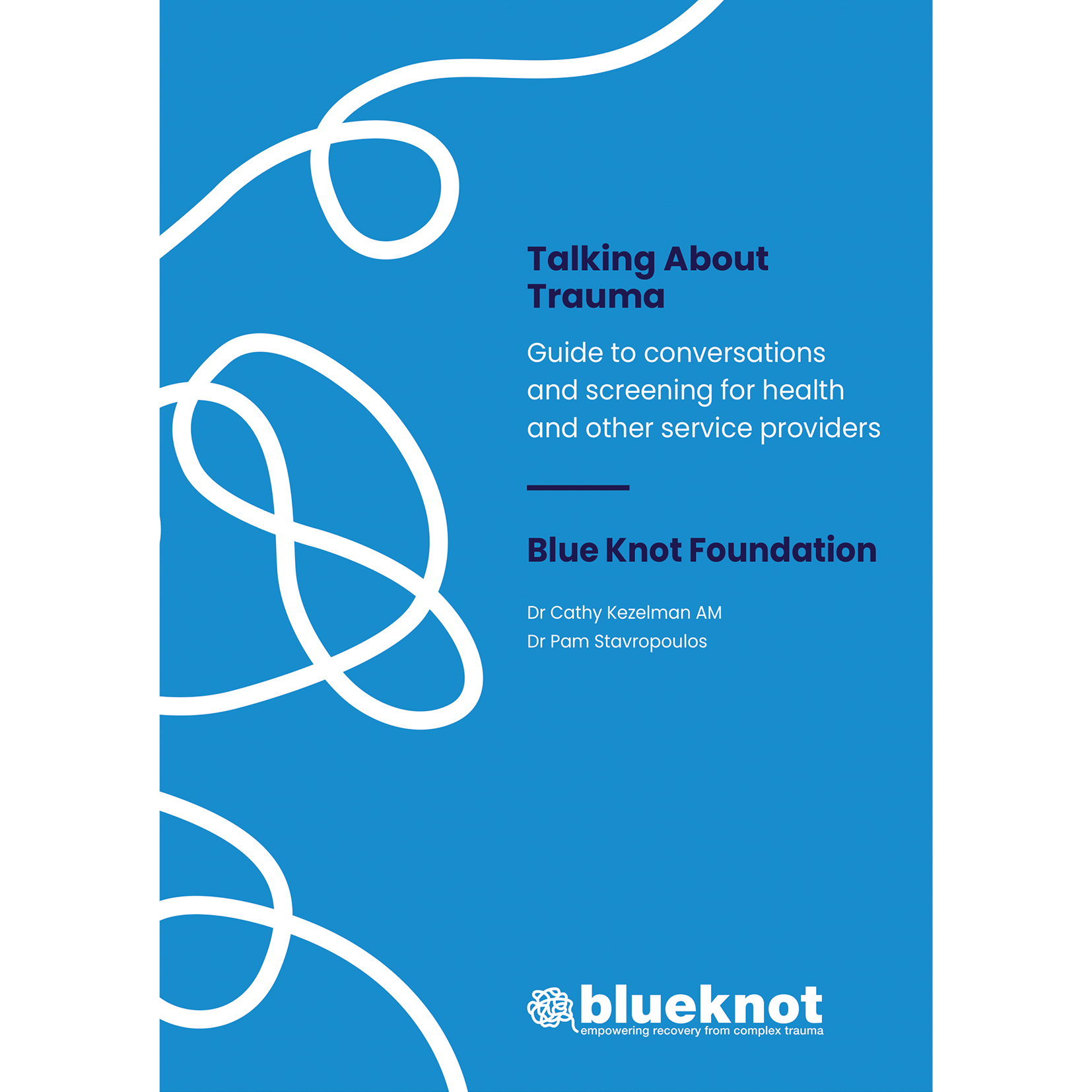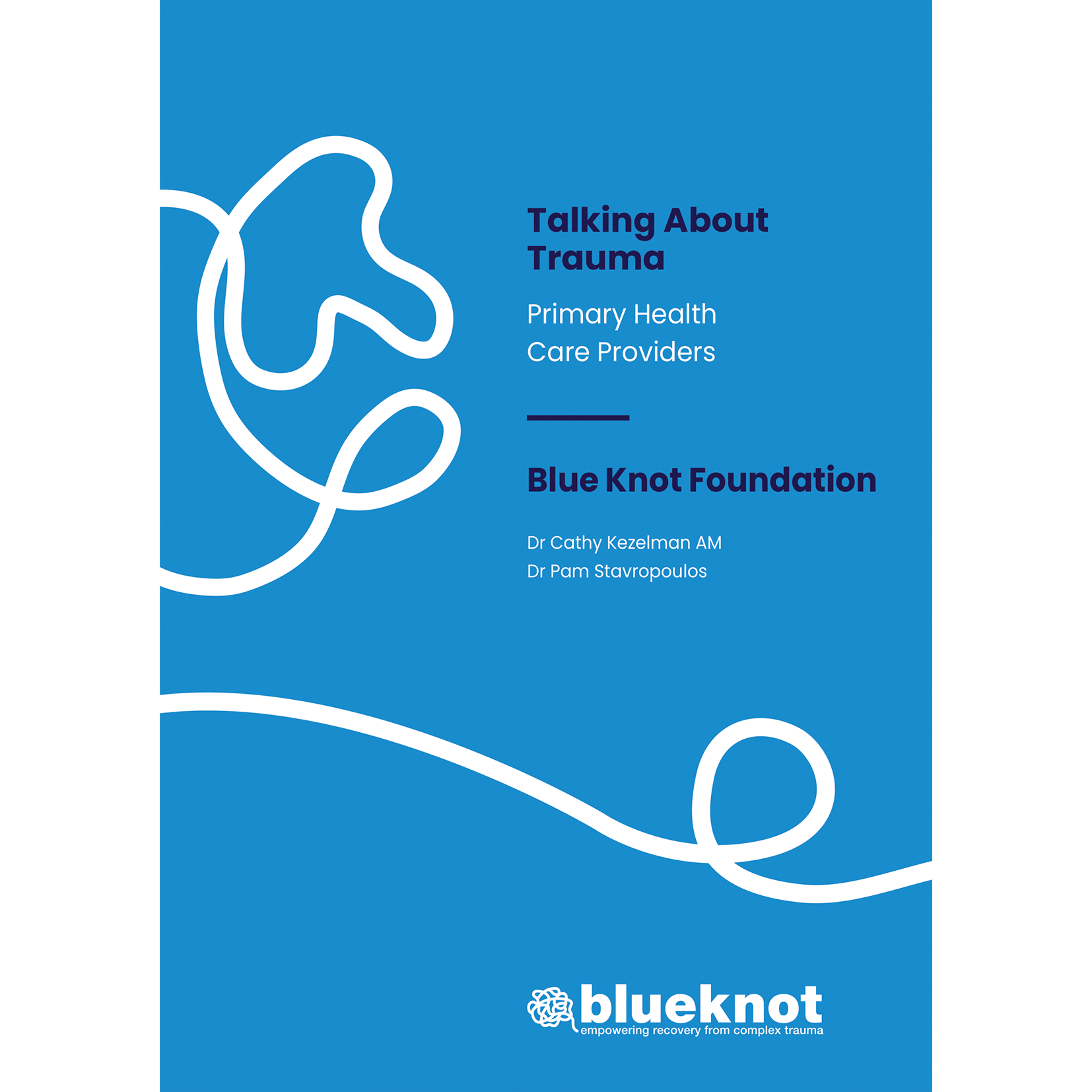As a society, and as practitioners it can be difficult to know how to respond appropriately to people who have experienced trauma. For this reason, Blue Knot Foundation has developed a Talking about Trauma series.
Each publication in this series supports a different audience to talk about trauma. Knowing how to ‘talk about trauma’ is essential to supporting traumatised people.
It is critical to driving trauma-informed change, which fosters recovery. Research shows that positive interactions assist trauma recovery, this includes personal social interactions as well as those within services.








